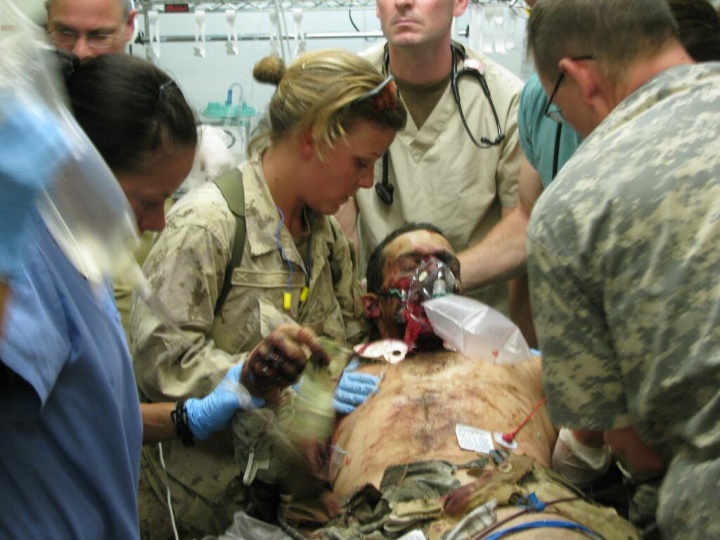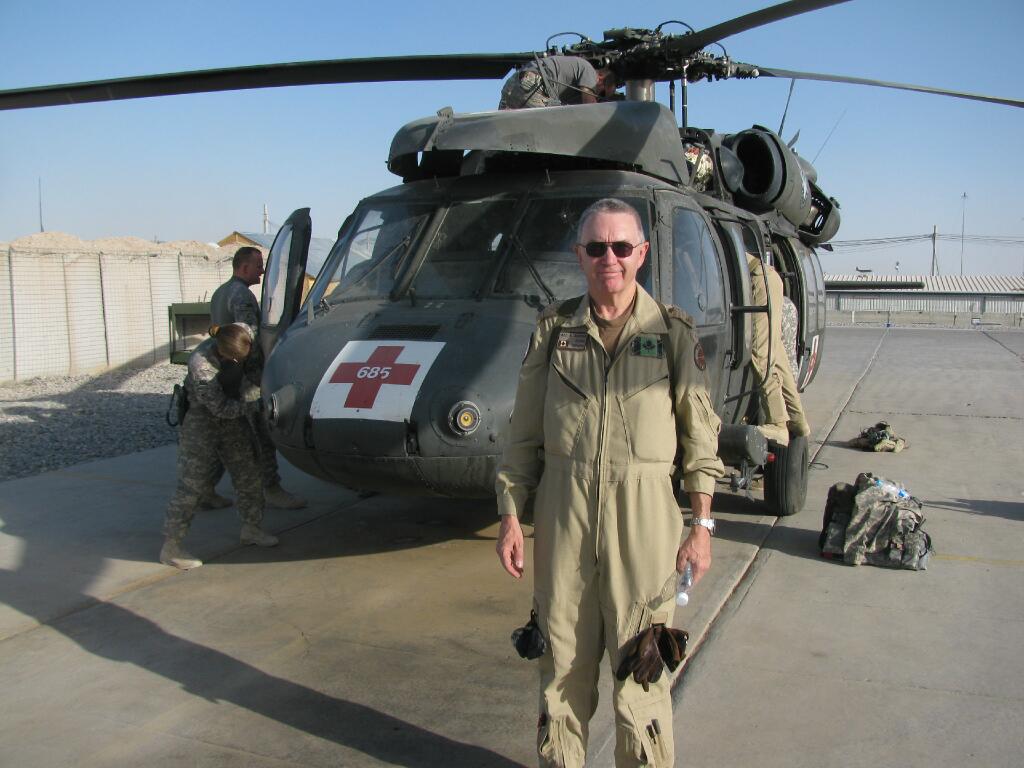The Correspondent and The Military Surgeon
Journalist and Ochberg Fellow Sally Sara discusses reconnecting with a military surgeon she had met in Afghanistan, and what it was like to revisit a period of immense trauma.

Journalist and Ochberg Fellow Sally Sara recently reconnected with a military surgeon she met in Afghanistan for a story that aired on ABC. Both Sara and the surgeon acknowledge that their experience there was one of the worst they had ever had. Fellow ABC journalist and Ochberg Fellow Lisa Millar talked to Sara about the story and about revisiting a traumatic time. Sally's ABC story can be seen here in two parts. (For part 1, click here; part 2, click here.)
Lisa Millar: Why did you want to do the story?
Sally Sara: It was a rare chance to meet up again with someone, after a crisis had passed and get their insights into what happened. I had a lot of respect for Dr Marc Dauphin. I was able to not only ask Marc about the trauma he witnessed, but also about the way I interviewed him in Afghanistan in 2009 - we both broke down at the time.
LM: Did you think twice about doing the story, worried perhaps it might revisit emotions or sights or scenes you didn't want to revisit?
SS: I was a little bit concerned about revisiting the story. The most difficult thing was watching the raw footage from the original story in Afghanistan in 2009, especially the footage of wounded children. I also found it hard having to watch edits of our story again and again.

Canadian military trauma surgeon Marc Dauphin.
LM: Was the doctor keen to do the story or did you have to persuade him?
SS: Marc contacted me to say he'd written a book about his experiences in Afghanistan. I suggested we film a TV story and he agreed straight away. So, he didn't need to be persuaded, nor did I.
LM: What did you mentally do to prepare for filming and meeting Dr Dauphin again?
SS: I didn't really prepare mentally. I felt ok about going on the assignment and Marc was also eager for us to do the story. It was a good experience. I feel really proud of the story.
LM: Had your encounters with Dart helped you?
SS: Dart has helped me in the way I interview people who have experienced trauma. I try to give as much logistical control as a I can, to the person I'm interviewing. I also try to give them as much information as possible about what will happen during the filming.
LM: What kind of questions have people asked you since the story went to air and what's the most surprising thing someone has said to you?
SS: Colleagues, friends and viewers have been really positive about the story. Many wanted to pass on messages of support and thanks to Marc for opening up about his experiences. I had people stop me in the street and in shops, commenting on the story.
LM: Do you regret anything about the story or would you choose to do anything differently?
SS: No.
LM: How difficult a decision was it to decide how much you would reveal personally?
SS: I was going to write a more detailed companion story about my own experiences, but decided not to. I thought it would be distracting for the audience and in future they would be focussing on me, rather than the stories I was reporting. So, I decided against it. I was a bit conflicted about it. On the one hand, Marc was completely open about his experiences and the story was all about the importance of speaking out, but I chose not to tell my own story.
































































































